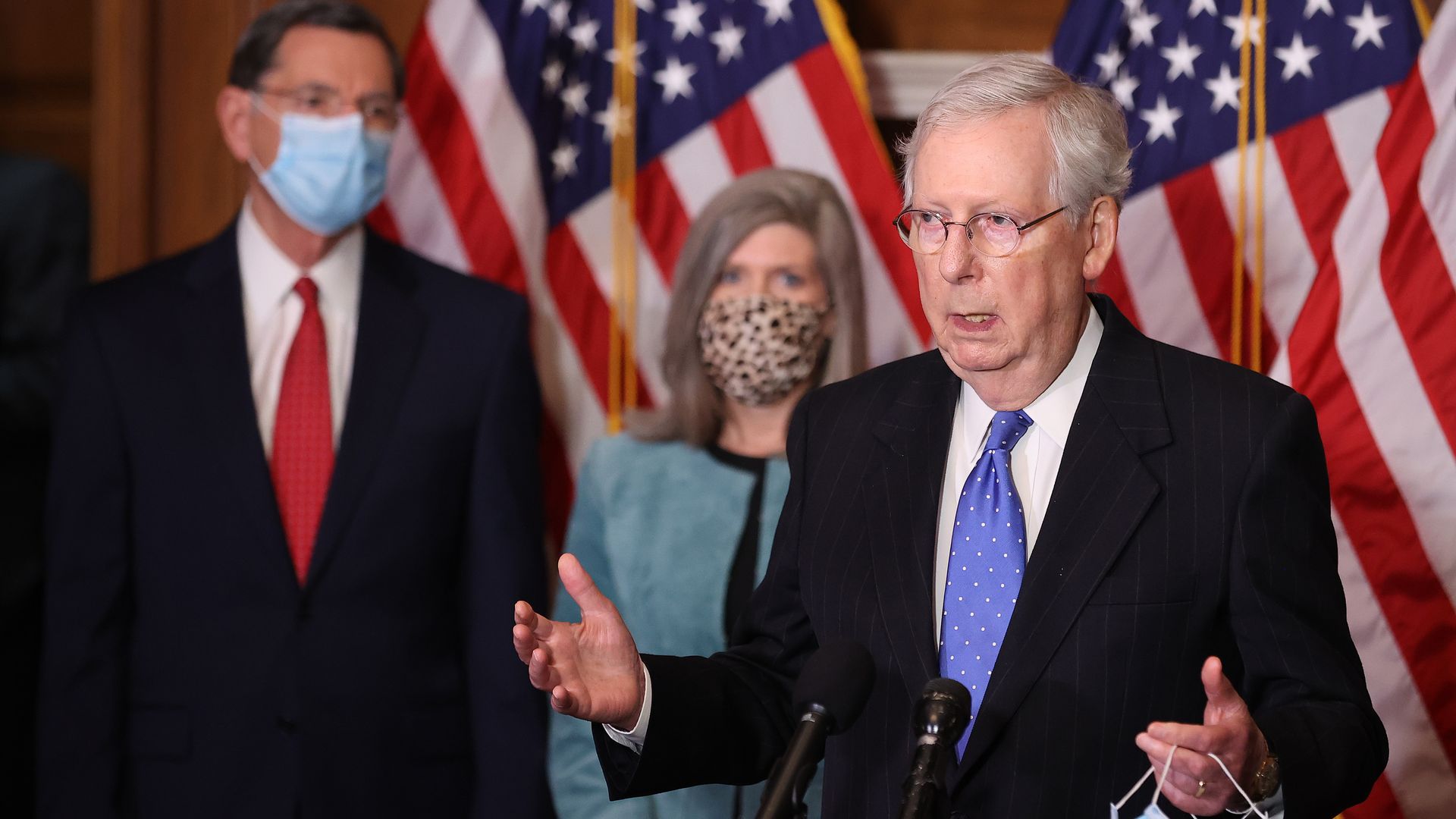Dec 1, 2020 - Politics & Policy
McConnell circulates revised GOP coronavirus stimulus plan
Add Axios as your preferred source to
see more of our stories on Google.

Senate Majority Leader Mitch McConnell talks with reporters today in the Mansfield Room at the U.S. Capitol. Photo: Chip Somodevilla/Getty Image

